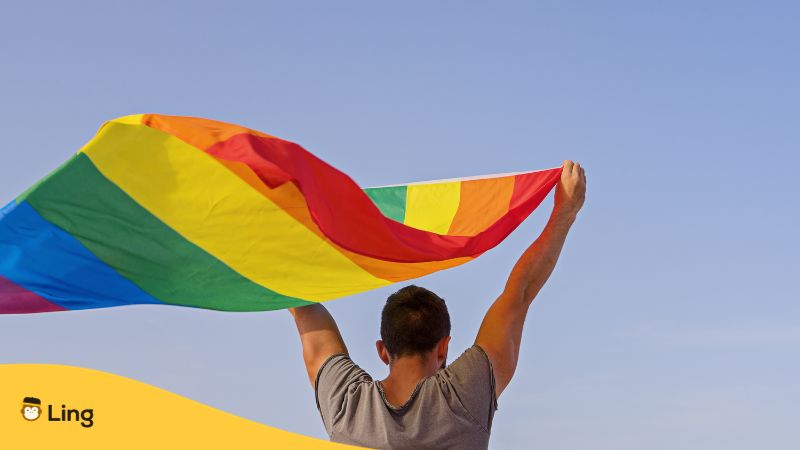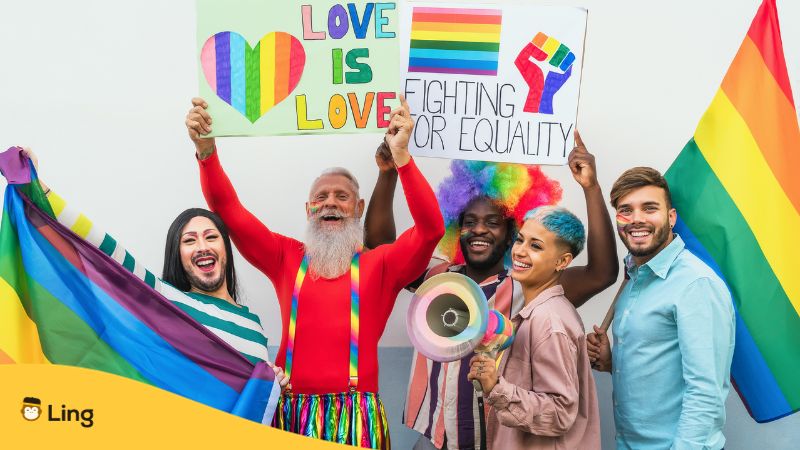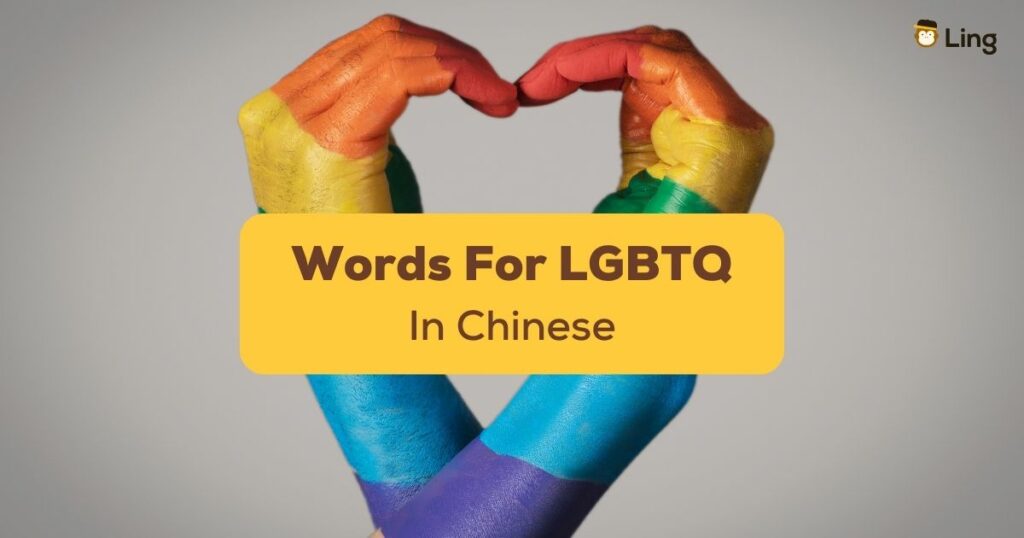Language is a powerful tool—a bridge between cultures, a means of expression, and a way to shape perceptions. In LGBTQ+ advocacy, words hold a special significance. They can inspire, empower, and foster understanding. In the different languages spoken around the world, the Chinese language stands out as a unique and vibrant thread. China is rich with its own set of empowering Chinese words for LGBTQ individuals.
Join us as we uncover the beauty and strength behind these words and discover how language can embrace our differences. So, let’s begin this journey through words that have the power to change hearts and minds.
Understanding LGBTQ+ Words And Expressions In Chinese Society
In a diverse and evolving society, the usage of language reflects the nuanced ways in which we express our identities and address different aspects of the LGBTQ+ community. Here, we provide key LGBTQ+ terms, their English translations, and pronunciations. It’s like a little dictionary for Chinese words for LGBTQ!
Comrade: Fostering Unity In The LGBTQ+ Community
In the realm of LGBTQ+ terminology in China, one Chinese word stands out for its historical significance and its unique linguistic journey – “Tongzhi” (同志), which literally translates to “comrade.”
A Surprising Linguistic Twist
At first glance, “comrade” may not seem like a word commonly linked to LGBTQ+ identity in mainland China. Even when you consider the word’s historical roots in traditional Chinese alphabet, it’s not a common LGBTQ word. Comrade was originally used within the political arena to address fellow members of the Communist Party. This emphasizes solidarity and unity among comrades rather than specifically addressing homosexuality.
However, nowadays, “Tongzhi” has a different connotation. It evolved into a subtle yet powerful symbol of unity within the LGBT community in China despite the rules of its historical usage.
Tongzhi As A Term Of Empowerment
In the LGBTQ+ context, “Tongzhi” took on a new meaning. It became a term that embraced the idea of camaraderie among individuals who shared a common experience. And this experience is navigating a world that may not always fully understand or accept their identities.
This transformation of “comrade” into an empowering term for LGBTQ+ individuals is a testament to the resilience and creativity of the community. It symbolizes the unity, support, and shared journey of LGBTQ+ people in China.

Chinese Slang Terms For The LGBTQ+ Community
Chinese slang terms for the LGBTQ+ community are as diverse and colorful as the community itself. These example words and phrases reflect the changing attitudes towards LGBTQ+ individuals in contemporary Chinese society. They offer a colorful contrast to more formal terms.
Understanding these slang terms and expressions is a window into the vibrant LGBTQ+ culture of the Chinese people.
- 弯 (Wān) – The literal meaning of this word is “bent,” and it is a colloquial way to describe someone who is gay.
- 断袖之癖 (Duànxiù zhī pǐ) – Translated as “the passion of the cut sleeve,” this phrase originates from a Chinese tale. Its story is about an emperor who cut his sleeve rather than disturb his male lover who had fallen asleep on it. This phrase became popular again following the release of Ang Lee’s film Brokeback Mountain.
- 蕾丝 (Léisī) – Pronounced as “Lace” in English, this Chinese term is sometimes used to refer to a lesbian.
- 百合 (Bǎihé) – This Chinese word literally translates to “lily” and is used to refer to lesbians. It refers to the love between both women partners.
- 基佬 (Jīlǎo) – This slang term means gay man and is somewhat equivalent to “gay” in English slang.
- 蕾丝儿 (Léisīr) – A playful variation of “蕾丝 (léisī)” (lace), often referring to queer women in a playful and endearing manner.
- 玉米 (Yùmǐ) – The literal meaning is “corn” in Chinese. This term is used in a playful way to refer to homosexual gay men.
- 娘炮 (Niáng pào) – This is a derogatory term in Chinese slang words. It is an expression used to describe an effeminate man, which can be translated as “sissy” in English.
Please keep in mind that the usage and connotations of slang terms can vary significantly across regions and communities. Some of these terms might mean different things from one person to another and may be considered offensive. It’s crucial to be respectful when referring to or talking about queer people, as using inappropriate terms can be hurtful and wrong.

Chinese Words For LGBTQ: Together We Can Make A Difference
We will now conclude this journey through Chinese words for the LGBTQ+ community. Remember that words have the power to shape our world, transcending borders from Hong Kong to Shanghai and Taiwan. They can tear down barriers and build bridges of understanding, getting rid of any doubt and supposed issues.
When you start to second-guess yourself in matters related to sexuality and gender, remember that questioning and self-reflection are natural steps toward understanding and acceptance. Be the change you wish to see, as language is a tool we all possess!
Learn Chinese With Ling!
Ready to supercharge your language learning journey? The Ling app is your ticket to mastering a new language while having a blast. With our user-friendly interface and engaging lessons, you’ll be speaking like a pro in no time. Don’t miss out on the fun!
Download the app on the App Store and Play Store today, and embark on your exciting language adventure!



































































